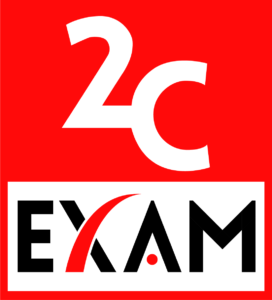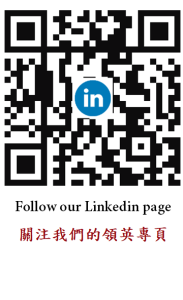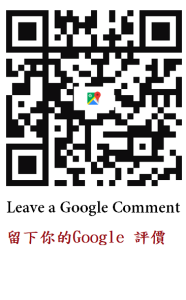According to the SFC Code of Conduct for Licensed Persons or Registered Persons regarding employee trading: licensed corporations/registered institutions (hereinafter referred to as companies) need to establish policies and inform employees in writing whether they are allowed to engage in personal trading in stocks, futures contracts, or leveraged foreign exchange contracts.
If the company allows employees to engage in personal trading or purchase securities, futures contracts, or leveraged foreign exchange trading contracts, the following is required:
Written policy outlining the conditions that employees must comply with when engaging in personal trading;
Employees must report all relevant accounts to management, including accounts of minor children and accounts in which the employee has a beneficial interest;
Generally, employees should conduct personal trading through their employer’s company or its affiliated companies;
If employees are allowed to trade personally through other brokers, copies of trade confirmations and account statements must be provided to company management;
Employee accounts and related accounts transactions must be recorded separately and clearly identified in the company’s records;
Management with no conflict of interest must supervise and review employee trading to prevent misconduct and ensure that it does not harm the interests of other clients.
In addition, a company may not knowingly trade securities or futures contracts for employees of another company unless it has obtained written consent from the other company.
Therefore, whether employees of Hong Kong licensed corporations/registered institutions can trade stocks mainly depends on whether their own company allows it, that is, the boss has the final say.
If allowed, it is not an immediate green light for trading stocks happily; employees still need to follow the company’s internal regulations. What internal regulations are usually in place?
Trade declaration and approval: Declare to the employer before making any transaction, and in some cases, obtain written approval from the company’s compliance department or supervisor before trading. This typically includes providing details about the securities, quantity, and price of the proposed transaction to ensure that the company understands the employee’s trading activity and prevents potential insider trading or conflicts of interest.
So, want to make a fortune in the stock market? Don’t forget to report to your boss first and get approval! Also, don’t hide your and your family’s trading activities!
Trading window periods: Trade within so-called “trading window periods.” These window periods typically begin after the company releases financial reports or other significant information to ensure that employees do not trade based on internal information.
So, have you heard any internal secrets? Don’t get excited! Never trade using this information; it is strictly forbidden!
Minimum holding period: Follow a minimum holding period, such as 30 or 60 days. This helps prevent employees from engaging in short-term trading based on internal information.
Bought stocks and want to sell them quickly? Don’t rush, take your time! Wait for 30 or 60 days before taking action.
Blacklist/restricted list: Prohibit or restrict trading in certain companies’ stocks, especially those related to the employer or clients. This helps prevent potential conflicts of interest and insider trading. Some stocks are off-limits; don’t touch them! Company resources are not for you to trade stocks with, and your trading activities must not affect the interests of the company and its clients; this is the bottom line!
Now, for a bonus question: if Xiao Mei is an employee of a Hong Kong asset management company, can she trade stocks? If so, what restrictions would apply?
-Xiao Mei may need to disclose and obtain approval from the company before engaging in personal trading.
-Xiao Mei may be prohibited from trading stocks held by the funds managed by the company to avoid conflicts of interest.
-Xiao Mei may need to follow a minimum holding period, such as 30 or 60 days, to prevent short-term trading.
-If Xiao Mei obtains non-public information about a company, she should comply with insider trading regulations and avoid trading while in possession of such information.
How can we help?
2CExam provides HKSI LE, IIQE, EAQE and SQE related exam preparation materials. We sell mock question banks for HKSI LE Papers 1, 2, 3, 5, 6, 7, 8, 9, 12 in Chinese and English; and bibles for HKSI LE Papers 1, 2, 6, 7, 8 in Chinese. We also offer 1 on 1 tutorial services. Besides, we have also made free tutorial videos for HKSI LE Papers 1, 2, 6, 7, 8, 12 and posted on public channels such as Youtube/ Bilibili/ Tencent/ Iqiyi. 2CExam has been an exam training expert for years. Should you need any help please visit www.2cexam.com or contact us through:
Phone +852 2110 9644 Email: [email protected] Wechat: hk2cexam WhatsApp: +852 9347 2064
Please support us by leaving comments and likes if you think this article helps you!
You can scan or click on the QR codes to visit our social media.
Latest Article
Categories
過往文章
Contact US
-
Phone:
+852 2110 9644
-
Email:
-
WhatsApp
+852 9347 2064
-
WeChat
hk2cexam
Interesting Articles
How to check the results of HKSI Paper?
How to check the results of HKSI LE Paper? How to check the results of HKSI LE paper? There are two situations for this. The first one is that if you take the exam in Hong Kong, most of them are computer-based exams, and you will know your results immediately after you finish the exam.…
What exam should I take if I want to be a sponsor?
In Hong Kong, unless an individual or company is exempted, If they wish to conduct the ten “regulated activities” defined by the Securities and Futures Ordinance, they need to apply for a license/registration with the Securities and Futures Commission. Type 1: Dealing in securities Type 2: Dealing in future contracts Type 3: Leveraged…
What exam should I take if I want to help customers buy and sell futures and options?
In Hong Kong, unless an individual or company is exempted, if they wish to conduct the ten “regulated activities” defined by the Securities and Futures Ordinance, they need to apply for a license/registration with the Securities and Futures Commission. Type 1 Dealing in securities Type 2 Dealing in futures contracts Type 3 Leveraged foreign…
What exam should I take if I want to help clients buy and sell Hong Kong stocks, US stocks, and bonds?
In Hong Kong, unless an individual or company is exempted, if they wish to conduct ten “regulated activities” defined by the Securities and Futures Ordinance, they need to apply for a license/registration with the SFC. Type 1 Dealing in securities Type 2 Dealing in futures contracts Type 3 Leveraged foreign exchange trading Type…
What exam should I take if I want to sell group insurance, accident insurance and disability insurance with death compensation?
Are group insurance, accident insurance and disability insurance with death compensation general insurance policies or long-term policies? In fact, there is no absolute answer, because an insurance policy with both accident/disability compensation and life insurance components can be general policies or long-term policies, depending on the plan. As in death compensation accident insurance: It…
What exam should I take if I want to sell life insurance, savings life insurance, annuities, and critical illness insurance?
Life insurance, endowment insurance, annuities, and critical illness insurance are all insurances that are particularly related to human life. Life insurance and endowment life insurance are types of insurance that pay consolation money to the beneficiary after the death of the insured. Annuities are closely related to the life of the insured. Basically for…
What exam should I take if I want to sell accident insurance, domestic helper insurance, and medical insurance?
Accident insurance, domestic helper insurance, and medical insurance are all medical-related insurances that are purchased in order to avoid burdening huge (medical) expenses. According to Hong Kong’s “Insurance Ordinance”, general business protection covers 17 categories, including accidents, sickness, and general legal liability. Therefore, if you want to sell accident insurance, domestic helper insurance, and medical…
What exam should I take if I want to sell engineering insurance and liability insurance?
Engineering insurance and liability insurance are insurances designed to avoid huge financial burdens caused by huge losses. Part of the engineering insurance will protect the legal liabilities of causing the third party to be injured or have property losses; while the liability insurance is to compensate for the liabilities derived from causing injuries or losses…
What exam should I take if I want to sell car insurance, water damage insurance, home insurance, property insurance, and marine cargo insurance?
Car insurance, water damage insurance, home insurance, property insurance, and marine cargo insurance are all property insurances that are purchased to cover losses caused by accidents. According to Hong Kong’s “Insurance Ordinance”, general business insurance covers 17 major categories, including land vehicles, ships, fires and natural forces, damage to property, etc. Therefore, if you want…
What is the Use for IIQE Certificates?
Is there any difference between notification of results and a certificate? Do I need to submit both at the same time when I apply for a license? The IIQE notification of results and certificate are two different kinds of proof. The Vocational Training Council (VTC) Institute of Professional Education and Knowledge (PEAK) is responsible…





